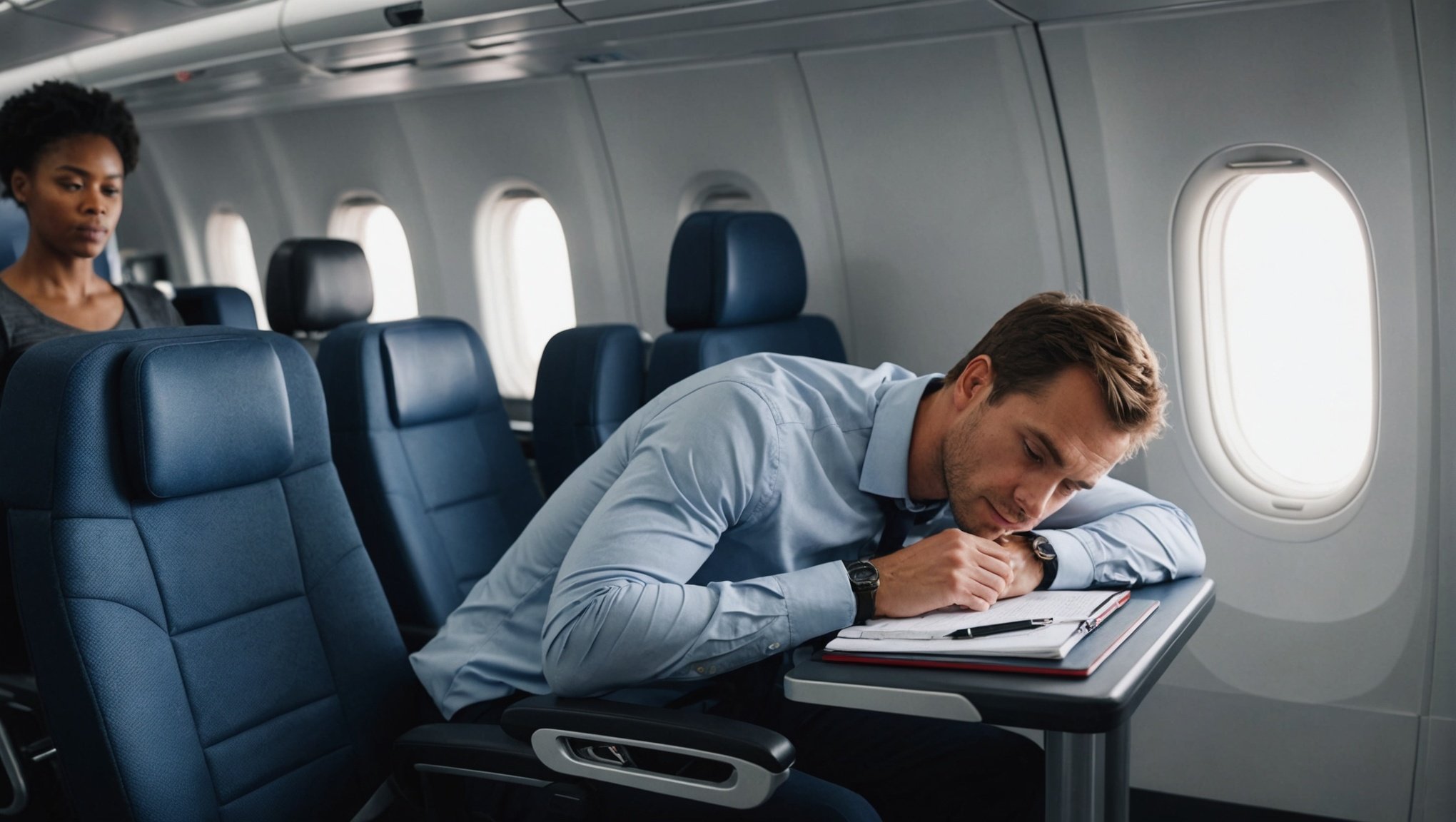Jet lag is an unwelcome companion for many of us who travel across time zones. The disorientation and fatigue that accompany this phenomenon can be particularly disruptive for the competitive athlete, whose performance may suffer as a result. But fear not, science has found ways to manage and even mitigate these effects and improve your ability to adjust to new time zones. This article will delve into the best practices to deal with jet lag, as supported by research from reputable sources including PubMed, Google Scholar, and others. We’ll discuss the science of sleep, the role of the circadian rhythm, and how light, melatonin, and even certain medicines can affect our ability to adapt to time shifts.
The Science of Sleep and Jet Lag
Understanding jet lag begins with understanding the science of sleep. As humans, we have a built-in biological clock, known as the circadian rhythm, that regulates our sleep-wake cycle. This rhythm is set by our exposure to light and dark and typically runs on a 24-hour cycle. When we travel across multiple time zones, our circadian rhythm gets disrupted, resulting in jet lag.
This might interest you : How can UK female kickboxers tailor their training during menstrual cycles?
Jet lag is characterized by several symptoms, including insomnia, fatigue, difficulty concentrating, and even digestive problems. These symptoms can significantly affect an athlete’s performance.
Studies published in PubMed and Google Scholar have shed light on how different factors can influence our sleep patterns and the severity of jet lag. One factor is the direction of travel. Generally, traveling eastward causes more severe jet lag than traveling westward, as it’s more difficult for our bodies to adapt to a shorter day than a longer one.
Also read : Which dietary supplements are safe and effective for UK martial artists?
Light Exposure and Circadian Rhythm
Our exposure to light plays a critical role in setting our circadian rhythm. Light stimulates receptors in our eyes that send signals to our brain’s “timekeeper,” the suprachiasmatic nucleus. This part of our brain then regulates various biological processes, including our sleep-wake cycle.
By strategically managing our exposure to light, we can help reset our circadian rhythm more quickly after a long flight. For instance, if we’re traveling eastward, we should seek exposure to morning light and avoid evening light to help advance our internal clocks. Conversely, if we’re traveling westward, we should do the opposite.
However, this strategy requires careful planning and timing, as improper light exposure can exacerbate jet lag. For that reason, it’s recommended to consult with a sports medicine professional who can provide a personalized light exposure plan based on the specifics of your travel itinerary.
Melatonin and Its Role in Sleep Regulation
Melatonin is a hormone produced by our bodies that plays a major role in regulating our sleep-wake cycle. It’s often referred to as the “sleep hormone,” as its levels increase in the evening, stay high throughout the night, and decrease in the morning. This rise and fall of melatonin helps signal to our body when it’s time to sleep and wake up.
Studies have shown that melatonin supplements can be an effective way to alleviate jet lag. By taking melatonin at the right time, we can help shift our circadian rhythm to the new time zone more quickly. However, the timing and dosage of melatonin are crucial. Taking it at the wrong time may actually worsen jet lag.
Like with light exposure, a sports medicine professional can provide guidance on when and how much melatonin to take. It’s also important to note that melatonin supplements are not suitable for everyone, and they should only be used under the supervision of a healthcare provider.
The Role of Medicine and Other Therapies in Managing Jet Lag
Apart from light exposure and melatonin, there are other therapies and medications that can help manage jet lag. For example, some prescription medications can help adjust your sleep-wake cycle or reduce the symptoms of jet lag.
Some studies suggest that timed exercise can also be beneficial. Exercise can help reset the circadian rhythm, especially when done in bright light. However, it’s important to remember that timing is crucial. Exercising too late in the evening can actually delay your adaptation to the new time zone.
Lastly, proper hydration and nutrition can also aid in combating jet lag. Dehydration can exacerbate the symptoms of jet lag, so it’s crucial to drink plenty of fluids before, during, and after your flight. Furthermore, certain foods can also affect your sleep-wake cycle. For instance, foods high in tryptophan, an amino acid that the body converts to melatonin, can help promote sleep.
In conclusion, while jet lag is a common issue for athletes traveling overseas, there are various strategies that can help manage and alleviate its symptoms. Always remember to plan ahead and consult with a professional to ensure a smoother transition to your new time zone.
The Impact of Sleep Hygiene and Pre-Flight Preparation
A key component in managing jet lag includes maintaining good sleep hygiene and a stage of pre-flight preparation. This implies a consistent sleep schedule, a relaxing pre-sleep routine, and a suitable environment for restful sleep. Maintaining a healthy sleep routine before travelling can make it easier for athletes to adjust their sleep schedules to the new time zone.
Pre-flight preparation involves gradually shifting sleep schedules to align with the destination’s time zone. For instance, if travelling east, athletes should start going to bed earlier and waking up earlier several days before departure. This strategy, known as phase advance, can help reduce the severity of jet lag.
Moreover, the use of bright light therapy in the morning can assist in resetting the circadian clock. Light boxes, which simulate sunlight, can be used to trick the brain into thinking it is daylight, thereby encouraging the body to wake up. This method is particularly helpful when travelling across multiple time zones.
However, each individual’s circadian rhythm is unique and will respond differently to these interventions. While these methods might work for some, others may require a different approach. It is advisable to consult with a sports medicine professional who can provide personalised advice based on an individual’s specific needs and travel plans.
The Role of In-Flight Management and Post-Flight Recovery
Managing jet lag does not stop at pre-flight preparations. During the flight, one should stay hydrated and limit alcohol consumption, as dehydration can worsen the symptoms of jet lag. In addition, engaging in light physical activity during the flight can help prevent stiffness and boost circulation.
Upon arrival, athletes should try to adjust to the local time as soon as possible. This means eating meals, sleeping, and waking up according to the local time, even if they’re not hungry or tired. This can help reset the body’s circadian rhythms and speed up the adaptation to the new time zone.
Moreover, outdoor physical activity in the sunlight can assist in adjusting the circadian clock. Not only can it help keep the body active, but exposure to natural light can also signal the brain that it’s time to be alert.
Conclusion
In summary, jet lag is a challenge for many athletes travelling overseas, but it can be managed through a combination of good sleep hygiene, carefully planned light exposure, strategic use of melatonin, appropriate use of medications, and proper in-flight and post-flight management. While these strategies can help mitigate the symptoms of jet lag, it’s crucial to remember that each individual’s circadian system is unique. Therefore, personalised advice from a trusted source, such as a sports medicine professional, is invaluable.
By understanding the science behind sleep and jet lag, athletes can better prepare for transmeridian travel and minimise disruption to their performance. Athletes shouldn’t let jet lag hold them back. Instead, they should see it as another part in their journey towards success in their chosen sports.











